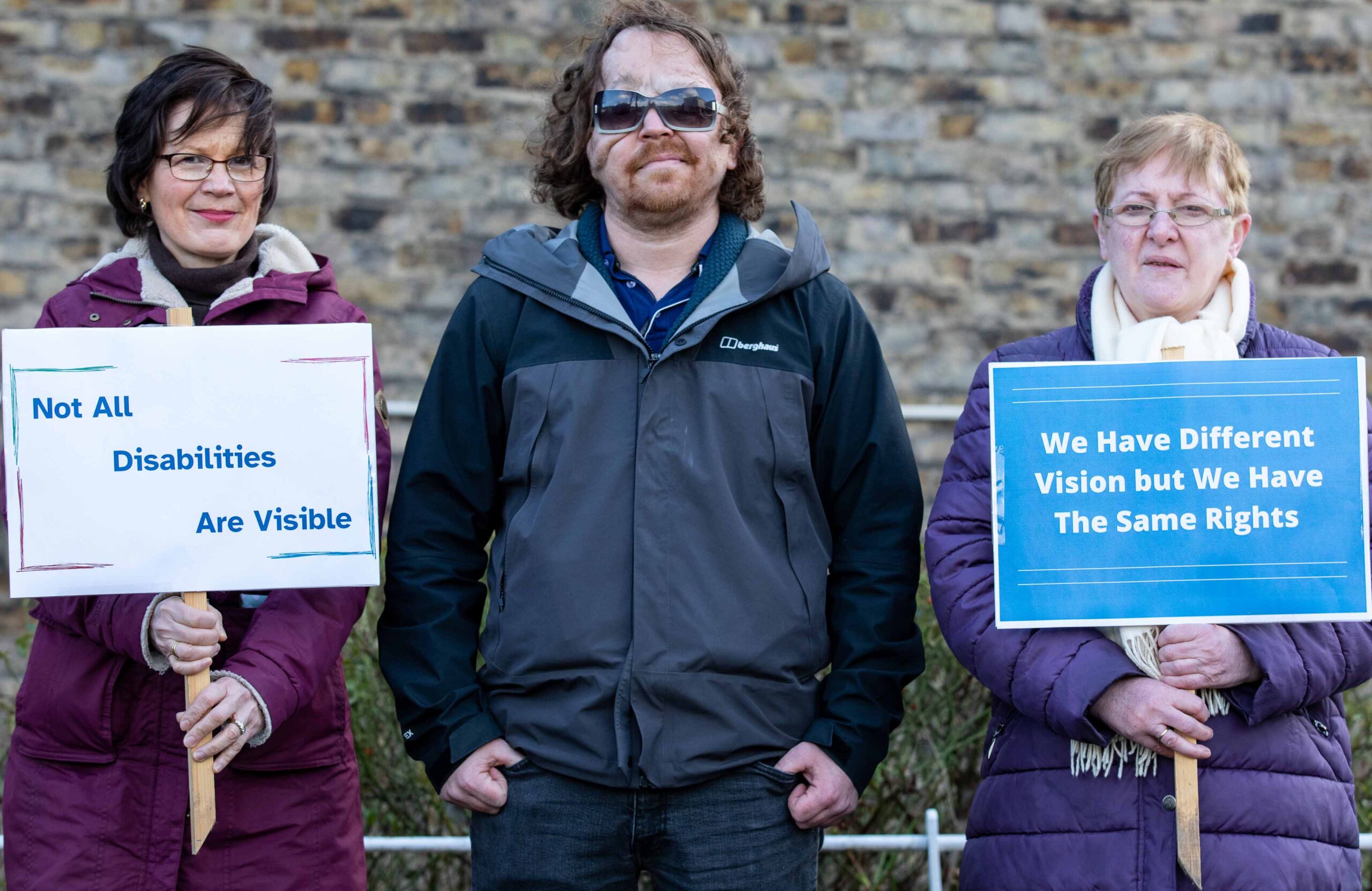
Employment Retention
If you are an individual with sight loss that is currently in employment, we put together some useful resources that might help you navigate the new situation. On this section of our website, you can discover how assistive technology and workplace adaptations can support you as an employee in your daily tasks. Also, you can learn more about what reasonable accommodations are, what they include, and which grants your employer might avail of if they need to adapt the work equipment or even buy a new one.

Job Seekers
If you are a job seeker, this section is for you! We put together a Jobseeker Starter-Pack, a comprehensive resource that equips you with essential skills for job hunting! It also compliments the existing Vision Ireland’s comprehensive guide which was specifically tailored for job seekers who are blind or visually impaired. Discover valuable tips, resources, and strategies for navigating the job market and securing meaningful employment. Finally, learn more about local job-seeking services which offer specialized support for individuals with disabilities. Tap into their networks, job listings, and expert guidance to navigate the job market successfully.

Vision Ireland’s Employment, Training, and Academia (ETA) Team
Learn more about our ETA team who are here to provide guidance, support, and resources to both employers and employees. Learn how they can assist in navigating employment challenges and promoting inclusivity.
Vision Ireland’s National Training Centre (NTC)
Discover Vision Ireland’s National Training Centre (NTC), a hub of educational and vocational training opportunities. Explore the various courses and programs offered to individuals with sight loss, empowering them to gain skills and qualifications.

Grants and Support Schemes
In Ireland, the government secures different funding and supports for employees with disabilities. From different employment schemes, aimed at promoting inclusive hiring practices and supporting career development for individuals with disabilities, to grants and funding opportunities available to support reasonable accommodations in the workplace. Additionally, access resources for people who are working with sight loss – there are several options to consider.

Equality in the Workplace
If you are curious about legislation that promotes equal rights, accessibility, and inclusivity for individuals with disabilities in the workplace, review the key provisions of the Disability Act 2005, and gain insights into the legal framework that protects individuals from discrimination based on disability through equality legislation.
Meet the ETA team
Join Vision Ireland in fostering inclusive employment practices and promoting equality in the workplace. If you want to learn more and access our resources, training, and support services, please contact Jodie McGriele, Lifecycle Manager: Employment, Training & Academia Team, via email at [email protected] or phone at 01 8821955. If you are an individual with sight loss who is not yet linked with Vision Ireland services, use our Referral System (Make a referral – Vision Ireland) to register and find more information.